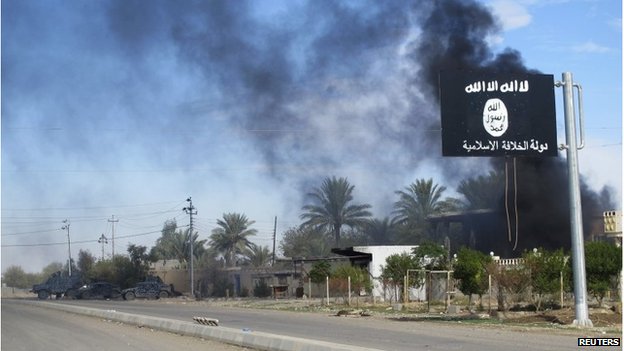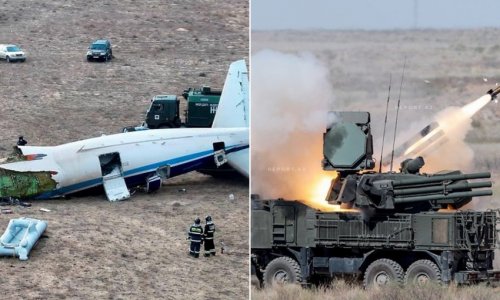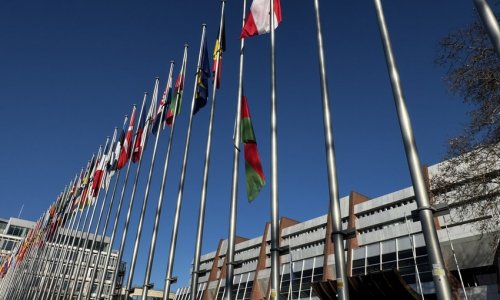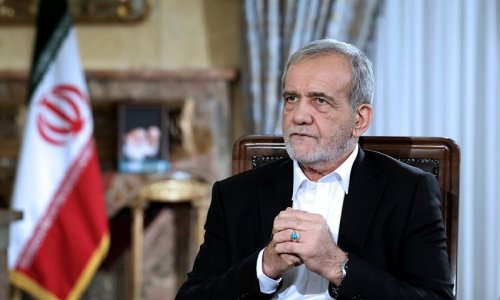By Catherine Shakdam
If Azerbaijan and the Caucacus region in general have seldom generated much media attention, that it is not say that we, the public, should not be paying very close attention to this seemingly insignificant part of the world.
Sitting at a geo-strategic knot of utmost importance, Azerbaijan might be small and clustered in between regional super-powers, but that is not to say that Baku cannot wield tremendous political gravity.
However small and lost amid a sea of greater powers, Azerbaijan and its Caucausian neighbors — Armenia and Georgia — could soon prove to carry the keys to world security and stability, especially since radicalization and sectarian-based violence continues to corrupt and spread far and wide into the Middle East and Eurasia, threatening to engulf all in its path.
As noted by Eldar Mamedov – political adviser for the social-democrats in the Foreign Affairs Committee of the European Parliament (EP), "The unraveling of Iraq may have some interesting, even alarming implications for the Caspian Basin state of Azerbaijan.”
And indeed, unlike other Arab states in turmoil, including Libya and Syria, Iraq has a religious and cultural profile that somewhat mimics Azerbaijan’s. Looking at developments in this particular region of the world and how Islamic radicals have exploited ethnic and sectarian fault-lines, one could use Iraq as a cautionary tale.
For one, both countries have Shia Islamic majorities with large Sunni minorities. In addition, both have lengthy experience with coercive, top-down secularism. In Iraq, Saddam Hussein’s Baath Party promoted secularism during the three-and-a-half decades it held power in the country. In Azerbaijan, the secular tradition dates back to the Bolsheviks’ arrival in power in the 1920s and extends to the present day.
Although it is difficult to make a linear analogy, there are two significant ways in which the disintegration of Iraq might pose security challenges to Azerbaijan and thus the region as a whole.
Mamedov asserted that "The first and most obvious is connected with the rise in Iraq of a Sunni jihadist movement, known as ISIS – Islamic State of Iraq and Al Sham – This development, over time, could stoke sectarian tension in Azerbaijan, a country where, even though secularism remains a powerful force in society, religion is making a strong comeback.”
For Shia worldwide, including those in Azerbaijan, opposing the violently anti-Shia ISIS movement is an existential issue, one which could spiral out of control should radicals’ advances remain unchecked.
If for now, Shia leaders in Azerbaijan have urged sectarian restraint, understanding that calls for action would only serve to fan further sectarian-based animosity and enmity in between communities, that it not to say that it will remain so.
There has already been an incident in the southern Azerbaijani town of Sabirabad, where local Shia residents attacked a man belonging to the Sunni Salafi movement – ultra-orthodox Sunni.
Although such incidents are still rare in secular Azerbaijan, signs that religious passions have been awaken are quickly emerging. As noted by Mamadov, "a rapidly rising number of citizens are using faith to help define their identities.”
He added, "Where older generation of Azerbaijanis saw themselves as Muslims mostly in a cultural sense, untroubled by religious semantic and sectarian labels, the Youth are not only very conscious of their identities but they are globalist in their outlook.”
At such a time when the Islamic world stands to face so many immediate existential threats, tensions in Iraq and Syria are bound to carry throughout, galvanizing an increasingly disenfranchised generation into action.
And if for now, few Azerbaijanis have answered the calls of radicals, Islamists’ E-propaganda could soon found a comfortable echo in the Caucasus, where ethno-sectarian tensions against Armenia have been already heightened since late November.
Among Azerbaijani Sunnis, the consolidation and expansion of the territorial foothold of ISIS in Iraq could act as a magnet, attracting the discontented to the jihadist banner. This phenomenon has already occurred in Syria, where some Azerbaijanis, such as a prominent An-Nusra fighter, Hattab al-Azeri, have taken up arms against Bashar al-Assad’s regime with an eye toward gaining experience that could be used one day against Ilham Aliyev’s administration in Baku. ISIS’ gains in Iraq, then, would seem to significantly increase the opportunities for and capabilities of Azerbaijani jihadists one day to launch terror and propaganda campaigns in Azerbaijan.
Again if such a threat remains for now remote, Azerbaijan represents an opportunity groups such as ISIS will likely attempt to seize and exploit, especially since like Iraq and Syria, Azerbaijan possesses vast energy resources, and thus immense wealth.
A second set of challenges is linked to the prospect of Iraq’s disintegration along ethnic lines. The Kurdish Regional Government (KRG) has announced plans to prepare a referendum on the independence of Iraqi Kurdistan. While a vote is not imminent, there is little doubt that if and when it took place, the pro-independence stance would win easily. This would encourage Kurds in Turkey and Iran to want to join their brothers in a new Kurdish state.
And while no state other than Israel has so far expressed clear support for an independent Kurdistan, an expectation that a Kurdish state might be pro-Western in orientation could conceivably lead to a subtle change in the position of the West. Indeed, the idea of remapping the Middle East along more homogenous sectarian and ethnic lines, once a purely mental exercise, is now being taken more seriously in Western policy-making discussions.
The problem for Azerbaijan is that there is considerable overlap between the Kurdish and Azeri populations in the western Iran. A Kurdish attempt to neatly separate, then, could easily spark tension in Iran, Azerbaijan’s neighbor. That, in turn, could ignite a nationalistic backlash among Iranian Azeris, placing the government in Baku in a difficult position.
While Azerbaijani state officials have been keen not to antagonize Iranian officials in order to retain functional and amicable relations with Tehran the idea of a ‘greater Azerbaijan’ might gain more traction if regional borders start being re-drawn, and if the West and Iran fail to reach a mutually acceptable nuclear deal, thus causing new Western efforts to economically and diplomatically isolate Tehran. A potential ‘greater Azerbaijan’ would be as likely to be as pro-Western and Israel-friendly as an "independent Kurdistan.”
Should such agenda be push forth though, it is most likely violent armed confrontations will ensue, potentially putting Baku at risk of complete institutional annihilation as both Russia and Iran will oppose any direct pro-western "remapping.”
Although Baku cannot hope to compete or even influence developments in Iraq, Russia and Iran, it has become evident that President Ilham Aliyev has already grasped shifting regional polarities, aware that whatever decisions his administration will take in regards to Armenia and foreign relations in general will have far-reaching repercussions.
(eurasiareview.com)
ANN.Az
Follow us !











